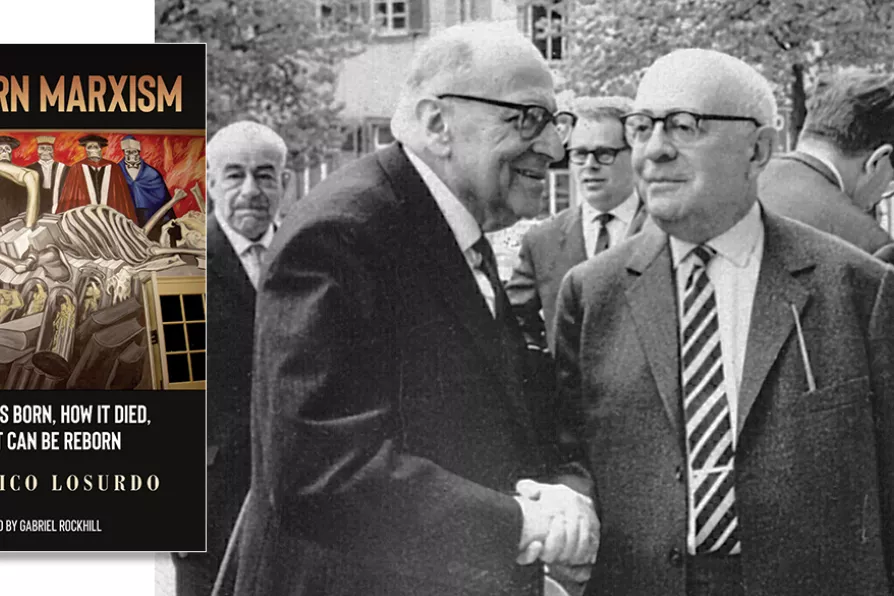New releases from Van Morrison, Tyler Ballgame, and Dry Cleaning

 THE DISRUPTORS: Frankfurt School regulars in Heidelberg, April 1964: Horkheimer is front left, Adorno front right, and Habermas is in the background, right, running his hand through his hair. Siegfried Landshut is in the background left.
[Jeremy J Shapiro/CC]
THE DISRUPTORS: Frankfurt School regulars in Heidelberg, April 1964: Horkheimer is front left, Adorno front right, and Habermas is in the background, right, running his hand through his hair. Siegfried Landshut is in the background left.
[Jeremy J Shapiro/CC]
Western Marxism: How It Was Born, How It Died, How It Can Be Reborn
Domenico Losurdo, Monthly Review Press, £20
THIS is an important book on an important subject. For some who, like this reviewer, failed to see the relevance of much academic Marxist discourse in the 1970s and ‘80s to their own political activity it will offer some reassurance: there wasn’t much.
First published in 2017, this first English translation of Italian communist philosopher, historian and politician Domenico Losurdo’s text is a trenchant criticism of a school of intellectual discourse from the “Frankfurt School” of the 1930s onwards.
Losurdo begins by documenting the separation of “Western” from “Eastern” (sometimes “classical” or ‘orthodox”) Marxism especially in relation to the latter’s development after the 1917 October Revolution. Following the failure of revolution to spread throughout Europe some left intellectuals were unable to come to terms with the contradictory realities of building a state capable of resisting its encirclement by imperialism.














